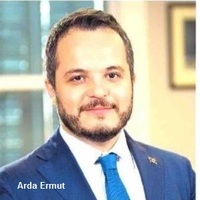

News
Invest in Turkey Aims to Bridge Perception Gap

NOVEMBER 2, 2017 | TREVOR WILLIAMS
Leaders from Turkey’s foreign investment agency stopped in Atlanta on a three-city tour looking to bridge what they view as a “perception gap” in the way U.S. companies view their country.
Turkey hasn’t had it easy of late. Earlier this decade, the nation of nearly 80 million people was on its way to becoming an EU member. It was the emerging-market darling of foreign investors after reforms helped stabilize and expand the economy.
Now, despite an enviable growth rate of 5 percent, Turkey is trying to shake off threats to its global reputation amid a diplomatic rift with the U.S.
Security is one major concern, after a spate of terrorist incidents including a July 2016 Istanbul airport bombing that killed more than 40 people.
Just a few weeks later came an attempted coup d’etat that led to 290 deaths and the subsequent purging of tens of thousands of members of the police force, judiciary and academia.
Turkish leaders have said the focus is on rooting out followers of exiled cleric Fethullah Gulen, whom President Recep Tayyip Erdogan has called a terrorist and accused of running a parallel state within Turkey.
But that crackdown is just the latest in a string of concerns about democracy and rule of law under Mr. Erdogan, who has caught increasing numbers of journalists and activists in his terrorism dragnet.
Formerly the prime minister, Mr. Erdogan also this year championed a constitutional referendum to alter the constitution to switch Turkey to a presidential system. The initiative narrowly passed in April, handing Mr. Erdogan new powers.
“Definitely there are questions coming up, and of course some of the criticisms are understandable, but sometimes you are facing the manipulation of data,” said Arda Ermut, head of Investment Support and Promotion Agency, also known as Invest in Turkey, in an interview with Global Atlanta. “It’s obvious that we face a perception gap.”
He said the constitutional reform was democratically passed and will streamline the Turkish bureaucracy, ensuring that the cabinet contains more technocrats instead of political lifers. The president will also be directly elected in the future.
Diplomatic Spat
But add to these issues the more recent diplomatic dispute that has halted visa processing between the U.S. and Turkey, and Mr. Ermut concedes that some companies may be discouraged from taking a fresh look at the country.
But he also said companies can see past the short-term turbulence to the country’s longer-term economic fundamentals.
“I can confidently say that the economic decision-makers, the companies, are far more rational than the political decision makers,” Mr. Ermut said.
Visa issues have disrupted some companies’ travel plans, but Turkey has made some exemptions available for investors on a case-by-case basis, he added.
“If it’s for business or investment in Turkey, we got the very clear support from the president and the Ministry of Foreign Affairs to grant visas for them,” Mr. Ermut said.
The spat began after the U.S. indicted members of Mr. Erdogan’s security staff over a fight outside the Turkish embassy in Washington. Weeks later, Turkey arrested two U.S. consular staffers in Istanbul, ostensibly in relation to the coup crackdown.
The U.S. claimed the charges were trumped up and shut down visa processing. Turkey responded in kind. So far, it’s been a stalemate with an ever-escalating war of words, especially by the outspoken Mr. Erdogan.
With the vested economic interests on both sides and a newly announced visit of Mr. Erdogan to Washington in November, Mr. Ermut of Invest in Turkey believes it’s only a matter of time before the dispute is settled.
“It’s a temporary situation, and it will be solved soon,” he said.
In the meantime, Mr. Ermut said he hopes Western allies like the U.S. will be more sympathetic of Turkey’s domestic and international challenges.
The country has faced the ISIS threat on its doorstep in Syria and a related influx of more than 2 million refugees. That’s in addition to its ongoing problems with Kurdish-led separatist terrorism and the Gulen movement.
The fight against ISIS had laid bare the conundrum American policy makers face working with Turkey to fight terrorism while backing Kurdish-led militias in the drive to take territory back from ISIS.
“We want our allies to count on our expertise in the region and our area of maneuver, because at the end we are the ones actually living there,” Mr. Ermut said.
Business Goes On
It’s not as if the political environment has led to economic paralysis in Turkey. Authorities project a 7 percent growth rate by the end of the year, and investments in infrastructure including the Istanbul “Third Airport” are moving ahead.
Mr. Ermut said Turkey’s young population and deep Internet and smartphone penetration provides opportunities for consumer products companies like Coca-Cola Co., which runs operations for 90 countries out of Istanbul. Turkey now has 20 cities with more than a million people.
The banking sector is also largely open to foreign investment, providing potential ins for Atlanta’s financial technology and payments giants. Mr. Ermut expressed interest in connecting Atlanta’s burgeoning startup scene to entrepreneurial efforts on the ground back home.
Turkey also has a slate of tax incentives that vary by region and sector. One notable policy that has drawn many IT centers to Istanbul is a tax exemption on income related to research and development activities within Turkey.
But incentives are the “cherry on the cake” of a location where companies can easily reach less stable but promising markets in the Middle East, Africa and Central Asia, Mr. Ermut said. Within four hours’ flight is a market of 1.6 billion people and a combined GDP of $26 trillion
Investment, once a lightning rod, is now a common objective in government, he said.
“This awareness is created in all segments of society, because at the end we are a very fast-growing country in huge need of investments many in different areas, and it’s obvious that we cannot make all these investments by ourselves.”
Connected to Atlanta
Tourism is also showing some resilience after a disastrous 2016, with arrivals from the first eight months of 2017 already surpassing last year. China, where tour operators sell packages, is focused heavily on Turkey next year.
Turkish Airlines, the airline with the most destinations on Earth, has had a direct conduit to Atlanta since last May with a daily flight, but Invest in Turkey would like to see the frequency increased, either by Turkish or another airline like Delta. (Mr. Ermut himself had to fly Lufthansa through Germany.)
After seeing the city, Mr. Ermut believes he and his colleagues will be spending more time here, especially since the World Trade Center Atlanta briefing showed him that many Atlanta firms and institutions are already deeply engaged with Turkey.
At the meeting were representatives from Aventure Aviation, SunTrust Banks, Centers for Disease Control and Prevention, AJC international, FranCounsel Group, Princeton Healthcare and more.
CNN, Coke, AGCO, UPS and other major companies have operations in the country.